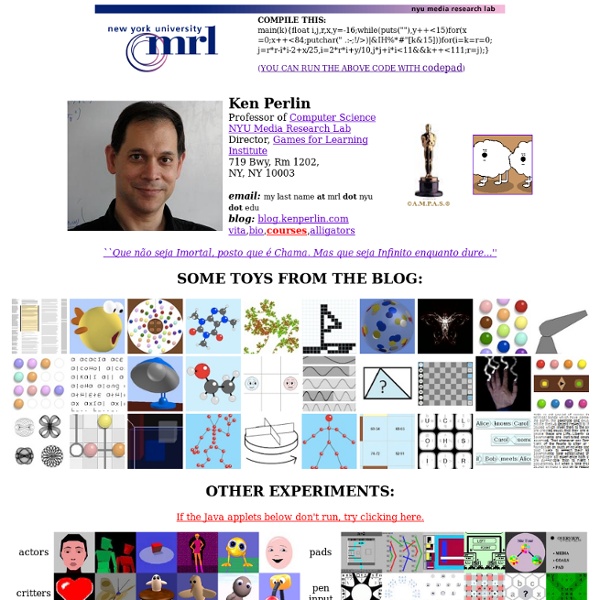



Geekosystem - Your Geek Guide To Tech & Internet Culture CMUSphinx: The Carnegie Mellon Sphinx Project Khan Academy Backpropagator's Review Purpose This document is something of a backprop FAQ, reading list (with a preference for online articles) and a summary of the state of the art. Its aimed at people who want practical advice on using backprop. Note that for the most part I am trying to avoid duplicating information that is already found in the NN FAQ that can be found at SAS Institute, North Carolina or a plain text version is available from the MIT FAQ collection and SAS Institute, North Carolina. In particular I am leaving it to the curator of the NN FAQ to list books and general backprop software. A Plea for Help I'm always on the lookout for worthwhile articles and experiences with the various techniques, if you can suggest articles or give your experiences with a technique please let me know. A Plea for Programs There are so many papers being published on backprop that no one can keep up. Viewing These Pages Now I am joining the crowd and recommending Netscape although lynx works perfectly well. <a name="xyz"></a>.
5 Ways to Give Yourself an Education That Kicks the Crap Out of the One You Got in School 5 Ways to Give Yourself an Education That Kicks the Crap Out of the One You Got in School One of the biggest reasons that people are denied the privilege of education is because they can’t afford it. However, today we live in a world where knowledge and information are at our finger tips like never before. Technology has leveled the playing field so that anybody with an interest and an internet connection can receive a world class education. Bloggers, podcasters, search engines and digital content creators of all types of have made it possible for us to learn virtually anything we want to even if we don’t have the money. If you want to learn anything chances are there is somebody creating content about the subject and sharing it with the world at no cost. Self Motivation is Not Optional Taking this kind of approach to educating yourself requires an extremely high degree of self motivation. 1. 2. Want to learn how to get in shape? 3. 4. 5. Education as we know it is changing rapidly.
The Bizarre Origins of 8 Wedding Traditions Throngs of excited customers clutching registry printouts at Crate & Barrel is a sure sign it’s wedding season. Before you head off to the next joyous union on your jam-packed calendar, let’s take a moment to reflect on the rich history of marriage celebrations and revel in the realization that weddings are, at their core, incredibly bizarre events. 1. The white wedding dress Technically, today’s wedding gowns aren’t white. They are “Candlelight,” “Warm Ivory,” “Ecru,” or “Frost.” Queen Victoria was not the first woman to rock a white wedding dress—and not even the first royal. Victoria wore a pale gown trimmed in orange blossoms for her 1840 wedding to Prince Albert, her first cousin. 2. So next time you tear up while watching a beaming father walk his little girl down the aisle, remember that it’s just a tiny, barbaric little holdover from the days when daughters often spelled dollar signs to daddy dearest. Read More Stories About Wedding Traditions Here: 3. 4. 4. 5. 6. 7. 8.
HLW: Introduction: The Book next to the part of the text that they refer to. At the end of each chapter is a section containing problems on the material in the chapter. There is a link to the problems covering a given section at the bottom of that section page. Linguistic examples In the book, linguistic examples from languages other than English usually include a representation of the pronunciation of the word(s) and the meaning of the word(s). For some linguistic examples the precise pronunciation is important; for others it isn't. When precise pronunciation is not important, linguistic examples appear in italics. In this example the word hablaban has been broken into three separate morphemes, and a meaning is given for each of these below the word in the second line. English usage The English used in this book is meant to be a relatively informal variety of standard written American English. , as has been common in English speech and writing since at least the time of Shakespeare . altogether.
The Netherlands in May - Their dazzling colors are thanks to the years in the 17th century when tulip mania swept the globe and the most eye-catching specimens changed hands for a small fortune. But like a Rainbow, this colorful landscape is a short-lived The Netherlands in May At first glance, it looks like a giant child armed with a box of crayons has been set loose upon the landscape. Vivid stripes of purple, yellow, red, pink, orange and green make up A glorious patchwork. Yet far from being a child's sketchbook, this is, in fact, the northern Netherlands in the middle of tulip season. Their dazzling colors are thanks to the years in the 17th century when tulip mania swept the globe and the most eye-catching specimens changed hands for a small fortune. Want to look anything up? Please visit stories, etc. for more pictures, stories, etc.